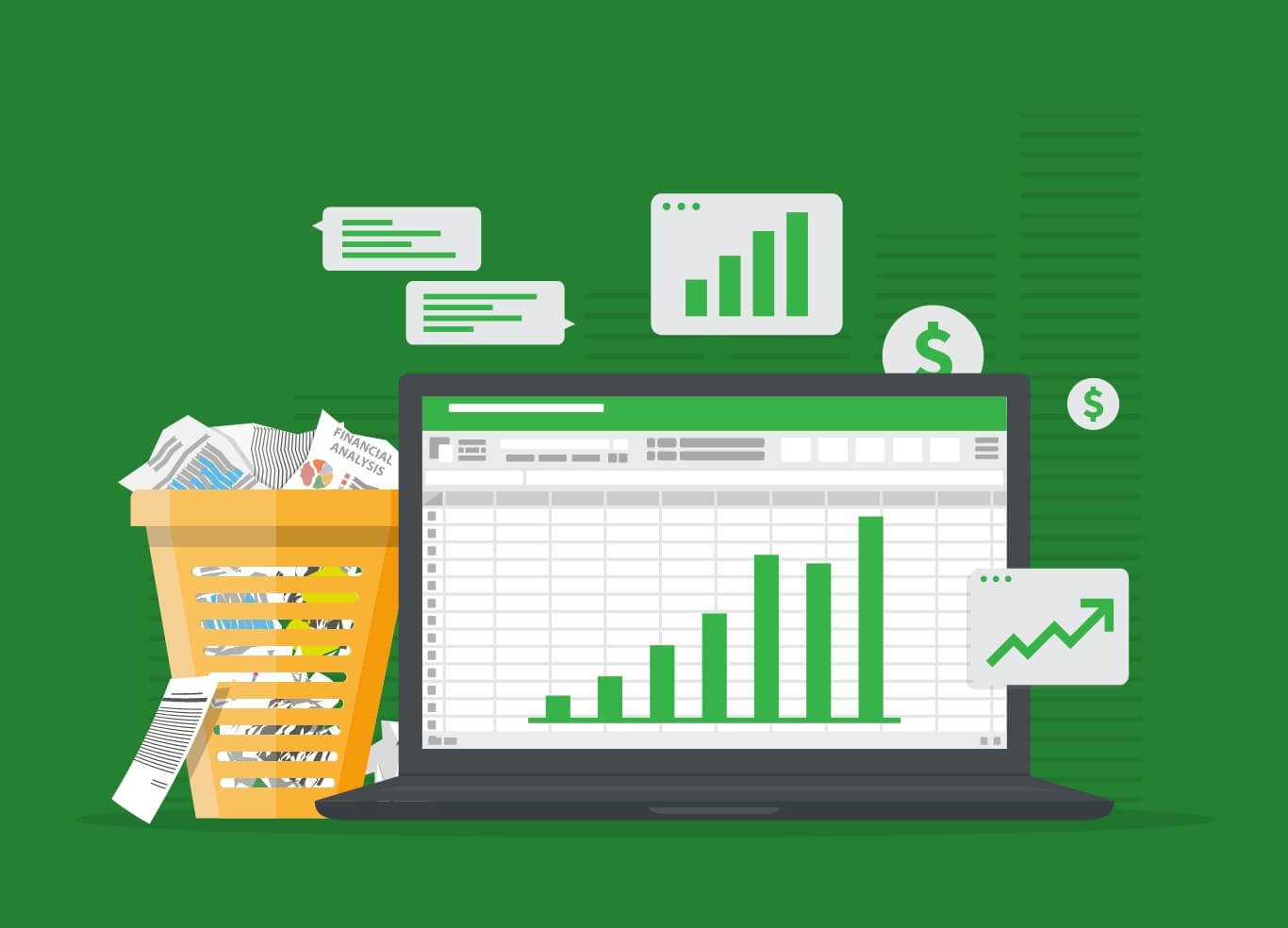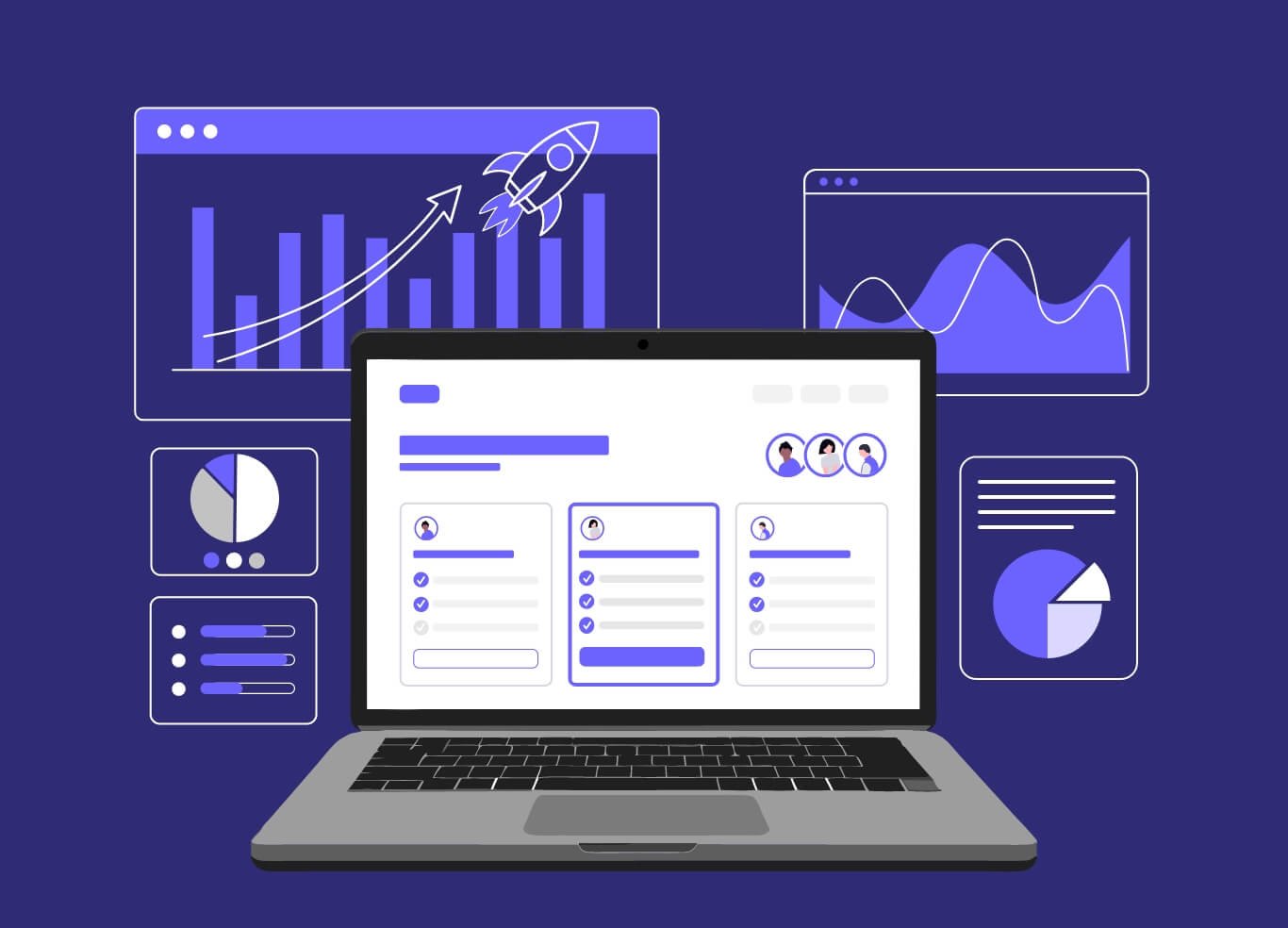Businesses in today’s landscape are constantly looking for new ways to stay ahead of the market curve. Rising tech and innovation have transformed how businesses from various sectors manage and streamline daily operations. As a matter of fact, organizations in the digital realm have access to large sets of data and even generate data from multiple sources. This data is the backbone of any firm —a strong pillar —that delivers accurate outcomes that drive business growth and success. Moreover, raw data isn’t the end game; it’s about leveraging the power of accurate data to extract useful, valuable insights. It is evident that high-quality, clean data is required. Not every time is raw data clean, as it often entails a plethora of errors, irrelevancies, missing details or values, incomplete details, and more.
Low-quality, insignificant databases cannot provide businesses with valuable insights. The economy comprises a variety of sectors that harness data for various purposes. In every industry, data is a valuable tool for professionals to stay ahead of market standards and remain competitive. However, having high-quality, highly accurate information is only useful if it is used as raw data; otherwise, it can mislead overall business results.
To prevent this, it is vital to clean the database used to extract useful content. Therefore, data cleansing is a mandatory concept for business professionals to implement. In the vast and growing economy, the financial sector is where data use is prominent and is generated from multiple sources. Not only this, but financial data is sensitive and is often kept confidential for various reasons. Financial data accuracy enables professionals to extract insights for reporting, managing risk, driving valuable results, maintaining operational activities, securing critical data, and more. Maintaining and managing data quality in the finance industry is one novel way to go.
For successful initiatives and effective data use, it is pivotal to clean and enrich data as a foremost task to gain an advantage. Data cleansing services here play a critical role in the financial industry, as professionals can harness accurate information and produce accurate financial reporting. Nonetheless, financial institutions have lump-sum-generated data in an unstructured format, which is highly useful. To ensure its accurate use, financial data cleansing services enable professionals to gain rich insights, streamline operations, deliver accurate outcomes, improve risk management, and support efficient financial reporting. To begin with, let’s understand in detail about data cleansing and enrichment services, and then focus on the financial sector.
Understanding Data Cleansing Services in Detail
In the dynamic business world, data is one of the primary resources that enable experts to gain valuable insights. These extracted insights are not only useful for enhancing operations but also for making data-driven decisions, understanding market insights and trends, revamping existing strategies, and more. As the market is competitive and constantly growing, businesses from different sectors tend to outsource data cleansing services due to several reasons.
Outsourcing service providers have access to the latest technology, a team of professionals, expertise in process, understanding of data security and cleaning guidelines, and more. These are the general reasons why businesses tend to outsource data cleansing services.
As a matter of fact, having hands-on, cleaned, and accurate data allows an organization to make strategic decisions and use data in different ways as required. In simpler terms, data cleaning is the process of removing or correcting incorrect, irrelevant, duplicate, or incomplete data. Clean, high-quality, and structured data fulfills the requirement and enables the organization to make efficient use of it for beneficial results. If the data is inaccurate, there is a high possibility of insignificant outcomes for businesses. Not only high data quality but also implementing data cleansing services in an organization brings various benefits, such as;
- Smarter decisions
- Efficient time-consuming
- Better customer relationships
- Compliant with industry standards
- Saves money
- Accurate security
- Increased productivity and efficiency
Messy, unclean, inaccurate data slows everything down in the business. From bad decisions to inaccurate information, all the processes are based on data. It is vital to enhance data quality through data cleaning services. Typically, every industry in the economy uses data that is supposed to be of the highest quality. Across industries, the financial sector requires enhanced data quality to enable accurate reporting, risk management, data-driven decisions, and more. As a matter of fact, data quality in finance holds the utmost importance. Let’s get a quick overview of data cleaning in the financial and risk management aspects.
Accurate Financial Reporting and Risk Management with data cleansing services
Importance of Data Cleansing in Financial Reporting
Financial institutions, facilities, and operational houses are required to maintain a smooth operational workflow not only to manage daily activities but also to extract valuable insights and manage financial data effectively. As a matter of fact, data quality in the finance industry is pivotal for daily processes, from better decision-making to driving strategic operational efficiency. With enhanced, high-quality data, financial institutions can make the most of it and achieve better results, delivering seamless outcomes.
Here, raw data collected and generated across multiple platforms and sources cannot be useful due to poor data quality and health. Hence, for financial data accuracy, data cleansing services are a game-changer, enabling professionals to better use data and derive more accurate insights. As briefly discussed, outsource data cleansing services is important in financial teams and institutions as it standardizes the formats, fills missing values, ensures data accuracy, and removes irrelevant and duplicate content.
Over the years, the financial sector has undergone technological and process transformations that have shaped how customers manage their finances, achieve quick financial resolutions, and enjoy better experiences. Customer data is a crucial aspect for a financial institution, as it is sensitive and confidential. Today, in the most advanced business landscape, data cleansing in financial reporting has become an indispensable tool, ensuring precise, reliable, error-free data for analysis, reporting, and informed decision-making. Financial institutions skipping the data cleaning process faces numerous challenges in the long run, such as;
- Poor decision-making outcomes
- Delayed financial process
- Poor customer and supplier relation
- Inaccuracy in performance evaluation
These are the challenges in a financial institution that hinder the overall process and significant outcomes. Financial data accuracy enables business professionals to analyze large datasets and derive insights to inform decision-making. The following are some of the benefits of financial data cleansing services;
Key Perks of Financial Data Cleansing
Enhancing data accuracy and efficiencies
Informed decision making
Early detection of inaccuracies and errors
Builds credibility and trust
Cost efficiency
Streamlined operations
Financial firms have large datasets in unstructured, unorganized formats. Cleaning and ensuring high-quality data enable professionals to produce more precise financial reporting and better financial risk management. Moreover, financial institutions face a range of risks, including fraud, data breaches, and information leaks.
Additionally, outsource data cleansing services by a reliable team of professionals not only promises accurate results but also ensures the efficiency, reliability, and precision in data quality for further uses. Data quality in finance isn’t just about cleaning up irrelevant errors or duplicate content; it is a significant process for achieving desired results. Explore in detail the process for financial data cleansing services.
Process for Data Cleansing in the Finance Sector
As briefly discussed, the crucial importance of data quality in finance entails various steps that allow it to bring the required outcomes. The data cleansing process ensures the elimination of irrelevant information, errors, and duplication, and enhances efficiency and more. With various benefits of data cleansing for risk management and financial reporting, it entails steps that lead to accurate conclusions for businesses. As discussed, poor decisions and unreliable data can lead to inconclusive analysis for financial companies. Here’s a detailed process of data cleansing for the financial sector.
Steps of Financial Data Cleansing Service
Collecting Data
Standardizing Data
Remove Irrelevant Data
Quality Assurance
Removing Duplicate Data
Fill in Missing Values
Data Validation
Documentation and Monitoring
- Collecting Data: Before data cleansing begins, data is collected from various sources and platforms in raw, unstructured format. It can be collected from databases, files, leads, customer information, query forms, and more. Financial institutions have a plethora of ways to get data, which is briefly collected and stored in a secure platform.
- Removing Duplicate Data: During the collection of information from various sources, the data is collected in raw format, which often contains errors, duplications, poor data quality, and more. With the help of finance data cleansing services, professionals can obtain high-quality, clean data, free of duplicates and irrelevant content, using data hygiene tools. This ensures that all information is relevant and that data entry is accurate. Duplicate content is most common in the finance industry, as multiple entries for the same customer appear in the same sheets, creating inconsistencies and errors in the future.
- Standardizing Data: Once the errors, duplicates, and irrelevant data are removed, the next step is to standardize the data. Data standardization transforms data from different sources into a common format, ensuring consistency and reducing errors. By removing duplicate data and irrelevant information, data cleansing experts ensure that data is in a standardized format for better financial analysis, reporting, and risk management.
- Fill in Missing Values: Standardizing data and removing erroneous content can sometimes leave data with missing values, incomplete information, and more. This can hinge the overall financial analysis, incompleteness, and more. With accurate data cleansing, financial analysis and reporting are conducted precisely by filling missing values and ensuring complete datasets for valuable insights.
- Remove Irrelevant Data: Eliminating irrelevant information from the dataset helps financial businesses enhance data quality. Outdated records, unrelated information, duplicates, and more become hurdles during analysis. Financial data accuracy improves the quality of analysis and reporting, and drives significant insights. Cleaning the dataset and removing irrelevant information streamlines the process, enabling more efficient analysis and better risk management.
- Data Validation: This is a highly vital part of the financial data cleansing services. Data validation aims to assess the quality of information, including precision, data sources, and more. Validation allows experts to have precise, hands-on information and make the most of the detail, from streamlining operations to making informed decisions.
- Quality Assurance: Once the validation process is complete, implementing quality checks is vital for maintaining the quality over time. By regularly performing quality assurance processes and maintaining datasets, financial professionals can streamline daily operations and produce accurate analyses to revamp strategies and processes.
- Documentation and Monitoring: Data cleaning, documentation, and monitoring are integral to gaining insights and adopting changes in line with trends. Continuous monitoring facilities maintain high data quality standards through an accurate data cleansing process and quality assurance checks.
This data cleansing process can be customized as per the requirements and the database. However, to achieve and reap all the benefits of data cleansing, this process is a gateway that requires the right implementation and integration of technologies and tools. Tools, software, and more require expertise, skills, knowledge, and significant training. Therefore, partnering with a data entry company in India enables a financial organization to enhance overall efficiency and make the most of its data. Quickly explore the benefits of outsourcing data cleansing services for the financial sector.
Outsourcing Financial Data Cleansing Services
Data cleansing is a significant process that enables financial institutions to have hands-on, accurate, clean, and efficient information to drive better results. With rising significance, data cleansing outsourcing has become a prominent solution for financial institutions. Businesses are keenly seeking novel ways to cut expenses and hands-on, precise data-cleaning solutions to drive insights. Robust data cleansing enables firms to streamline operations and make informed decisions. With the right use of technologies and tools, outsourcing experts ensure precision in data cleansing for financial reporting and risk management.
Uniquesdata is a top data entry company in India, offering specialized data cleansing services. With a team of experts and access to the right technologies, professional financial data cleansing services enable financial institutions to make informed decisions, streamline operations, and adapt to dynamic market trends.
Final Note
Outsource data cleansing services have become key solutions for financial sectors to adopt and stay ahead in the market curve. From improving data quality to enhancing overall efficiency, data cleansing outsourcing helps the financial industry obtain precise, hands-on information.



